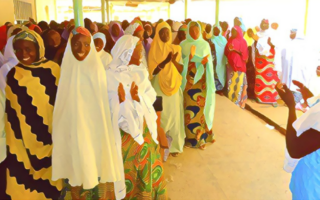
The Council is conducting longitudinal research to improve the experiences of IUD users in the Keraniganj, Savar, and Nawabganj Upazila regions of Dhaka District in Bangladesh. Following IUD insertion among married women aged 18-45 with at least one child, we are gathering feedback on satisfaction, side-effect management, continuation or desired discontinuation, and removal.
Why it Matters: Bangladesh’s family planning program has made significant progress over the last few decades, observing a lower fertility rate and a higher contraceptive prevalence rate. However, the contraceptive discontinuation rate remains elevated. Despite IUDs being one of the cheapest, safest, and easiest to maintain forms of contraception, use in Bangladesh has been decreasing since the early 1990s. Less than 1% of women in Bangladesh currently use an IUD.
The Approach: This two-year study will span from September 2021 to October 2023.
What we are doing:
- Enrolling 600 married women of reproductive age (18-45 years) with at least one child who express their interest in using long-acting reversible contraception.
- Employing service providers at healthcare facilities to obtain informed consent and to insert IUDs according to the national protocol.
- Employing female welfare visitors (FWVs), senior FWVs, and female sub-assistant community medical officers (SACMOs) at each facility to follow up with enrolled clients.
- Interviewing IUD clients at the end of first, sixth, and twelfth month of IUD use to assess satisfaction, side-effect management, continuation or desired discontinuation, and removal.
The Big Picture:
- Results will be disseminated to policymakers, government departments, program managers, researchers, development partners, and non-governmental organizations (NGOs) to support adoption of effective strategies to improve IUD service provision.
- Increasing the number of IUD users has potential to reduce Bangladesh’s on-going spending on short-acting contraceptive methods.
Partners:
Funders:




